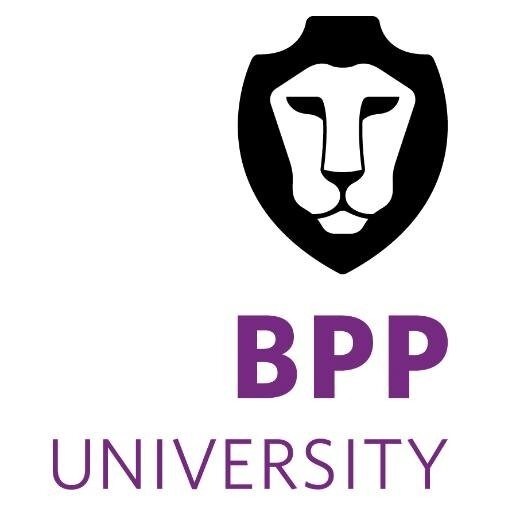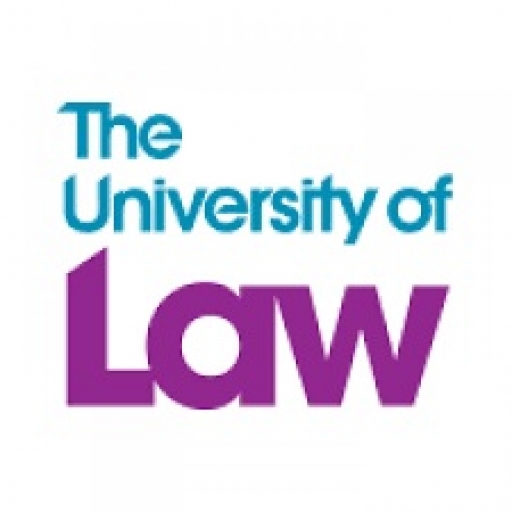Photos of university / #uni_southampton
The MSc in European Embedded Computing Systems (EMECS) at the University of Southampton is a comprehensive postgraduate programme designed to provide students with in-depth knowledge and practical skills in the design, development, and deployment of embedded computing systems within the European context. This programme combines rigorous academic coursework with hands-on laboratory experience, preparing graduates to meet the demands of the rapidly evolving embedded systems industry. Students will explore a wide range of topics including embedded hardware architectures, real-time operating systems, middleware technologies, embedded software development, hardware-software integration, and system security. The curriculum emphasizes the application of advanced computing techniques to real-world problems encountered in automotive, aerospace, industrial automation, and consumer electronics sectors.
Throughout the programme, students will engage with cutting-edge research and industry practices, gaining exposure to European standards and regulations relevant to embedded systems. The course structure fosters innovation, problem-solving, and critical thinking, enabling graduates to undertake complex projects and contribute effectively to multidisciplinary teams. The programme culminates in a substantial MSc project, which allows students to specialise in an area of their interest, often in collaboration with industry partners or research institutions, thereby bridging academic learning with practical application.
The European scope of the course ensures that students develop a global perspective on embedded systems development, with attention to cross-border collaborations, standardization efforts, and market requirements within Europe. The University of Southampton's strong links with industry, combined with access to state-of-the-art laboratories and facilities, provides an excellent environment for experiential learning and professional development. Graduates of the EMECS programme are well-positioned to pursue careers in embedded systems engineering, R&D, consultancy, or to continue their studies at the doctoral level. Overall, the MSc in European Embedded Computing Systems offers a challenging and rewarding educational experience for those interested in pushing the boundaries of embedded technology within the European technological landscape.
The MSc in European Embedded Computing Systems (EMECS) offered by the University of Southampton is a comprehensive postgraduate program designed to equip students with in-depth knowledge and practical skills in the field of embedded computing. This programme focuses on the design, development, and deployment of embedded systems which are integral to modern technology, ranging from consumer electronics to autonomous vehicles and intelligent systems. Students will explore a range of topics including hardware architectures, embedded software development, real-time operating systems, and system integration, ensuring they are well-prepared to meet the demands of the rapidly evolving embedded systems industry.
Throughout the course, students will engage with both theoretical and practical aspects of embedded computing. The curriculum covers core areas such as digital electronics, microcontroller and microprocessor programming, embedded Linux, hardware-software co-design, and low-power system design. Emphasis is placed on hands-on experience through laboratory work, project development, and collaborative team assignments, enabling students to apply their knowledge to real-world scenarios. The programme also includes modules on system security, reliability, and standards compliance, which are critical in developing robust embedded solutions.
The MSc in EMECS is structured to provide a strong foundation in both the technical and managerial aspects of embedded systems. Students have opportunities to undertake a research project or industry-focused dissertation, working closely with academic staff or industry partners to address current challenges in embedded computing. This practical experience aims to enhance employability and prepare graduates for careers in embedded systems development, hardware design, software engineering, or product management.
The programme is suitable for graduates from engineering, computing, or related scientific disciplines who wish to specialize further in embedded systems. It combines rigorous academic coursework with industry exposure, ensuring graduates are equipped with the skills demanded by leading technology companies worldwide. Upon completion, students will possess a deep understanding of embedded hardware and software, the ability to design integrated systems, and a capacity to innovate in this dynamic field.
The University of Southampton's strong links with industry and research centers provide students with invaluable networking opportunities, internships, and access to cutting-edge technologies. The campus offers modern laboratories and facilities dedicated to embedded system research and development. Graduates of the MSc in EMECS can pursue diverse career pathways within the embedded systems sector across sectors such as automotive, aerospace, healthcare, and consumer electronics, contributing to technological advancements and digital innovation.
Programme requirements for the European Embedded Computing Systems (EMECS) at the University of Southampton typically include a strong academic background in relevant fields. Applicants are expected to hold a good UK Bachelor's degree (2:1 or equivalent) in Electrical Engineering, Electronic Engineering, Computer Engineering, Computer Science, or a related discipline with a focus on embedded systems, digital design, or related topics. Prior knowledge of programming languages such as C, C++, or Python is essential, along with understanding of hardware description languages like VHDL or Verilog. Candidates should also demonstrate proficiency in mathematics, including calculus, linear algebra, and discrete mathematics, which are fundamental for embedded systems design and analysis.
Experience or familiarity with real-time operating systems (RTOS), microcontrollers, and embedded software development tools such as IDEs, emulators, and debuggers is highly desirable. Industrial experience in embedded system development or relevant research projects can strengthen an application. Fluency in English is required; applicants must provide evidence of language proficiency through TOEFL or IELTS scores if their prior qualification was not obtained in English.
The university may consider other qualifications deemed equivalent to above standards. Additional preferred attributes include problem-solving skills, teamwork ability, and motivation for research and innovation in embedded computing.
Applicants should submit a complete application form, academic transcripts, a personal statement outlining their interest and relevant experience, and references from academic or professional sources. It is recommended that prospective students review specific admission criteria on the official university website as they may update requirements periodically. The programme aims to attract students with a solid technical foundation eager to advance their expertise in embedded hardware and software systems within an international context.
The European Embedded Computing Systems (EMECS) program at the University of Southampton offers a comprehensive financing opportunities framework designed to support both domestic and international students throughout their studies. Funding options include scholarships, bursaries, and financial aid tailored to assist students in managing their education-related expenses. The university provides a range of merit-based scholarships for outstanding applicants, which are awarded based on academic achievement, potential, and other criteria. These scholarships often cover partial or full tuition fees and may include additional allowances for living expenses.
Research councils and government grants are also accessible for eligible students, particularly those pursuing research-intensive components of the degree or engaging in collaborative projects. International students may benefit from specific funding schemes aimed at promoting global diversity and excellence within the university's student body. Additionally, the university offers guidance on external funding sources, such as industry sponsorships, charitable organizations, and corporate partnerships, which can provide financial assistance and practical support.
For students taking out loans, the university participates in UK government student loan programs, enabling eligible students to finance their studies with manageable repayment terms post-graduation. Work placements and part-time job opportunities on or near campus provide additional income avenues, helping students to offset living costs while gaining practical experience in embedded systems and computing industries. The university’s financial aid services also offer personalized advice and planning assistance, ensuring that students effectively navigate the available funding landscape. Overall, the program's financing options aim to make high-quality education accessible and affordable, supporting students in achieving their academic and career goals without undue financial burden.
The MSc in European Embedded Computing Systems (EMECS) at the University of Southampton is an advanced postgraduate program designed to equip students with comprehensive knowledge and practical skills in the development, implementation, and management of embedded computing systems within an European context. This program focuses on the integration of hardware and software components to create efficient, reliable, and innovative embedded solutions across various sectors such as automotive, aerospace, healthcare, and industrial applications. The curriculum combines theoretical foundations with practical projects, enabling students to gain hands-on experience in designing embedded systems that meet industry standards and European regulatory requirements.
Students enrolled in the EMECS program have the opportunity to learn about the latest trends in embedded computing, including real-time operating systems, embedded hardware design, programming languages specific to embedded development, and system security. The program emphasizes multidisciplinary approaches, encouraging collaboration between students from engineering, computer science, and related fields. Core modules typically cover topics like Embedded System Design, Digital Design and Hardware Description Languages, Software Development for Embedded Systems, and Power Management. Elective modules might include topics such as IoT Systems, Embedded Security, and Automotive Embedded Systems, allowing students to tailor their learning according to their interests and career aspirations.
The program offers a blend of lectures, laboratory sessions, and project work, providing students with real-world experience and an understanding of industry practices. Students may work on industry-sponsored projects or collaborative research initiatives, fostering strong links with European and international companies. The university’s facilities, including state-of-the-art laboratories for embedded hardware and software development, campus-based workshops, and access to industry-standard tools, support students in their learning journey.
Graduates of the MSc in European Embedded Computing Systems are well-prepared for careers in embedded systems engineering, research and development, system design consultancy, or entrepreneurship within the technology sector. They may find employment opportunities in sectors such as automotive electronics, aerospace systems, consumer electronics, medical devices, and smart infrastructure. The program also serves as a pathway for further research or doctoral studies, thanks to its rigorous academic curriculum and research-oriented approach.
Throughout the course, students benefit from the university’s strong connections with industry partners across Europe, facilitating placements, internships, and networking opportunities. The international aspect of the program enhances students' global outlook, preparing them for careers in multinational companies or collaborative European projects. The MSc typically takes one year of full-time study to complete, with flexible options for part-time students.
Overall, the MSc in European Embedded Computing Systems at the University of Southampton provides a robust foundation in embedded systems engineering, emphasizing innovation, European industrial standards, and interdisciplinary collaboration. It aims to produce graduates who are not only technically proficient but also capable of addressing the evolving challenges of embedded computing in a rapidly changing technological landscape.





